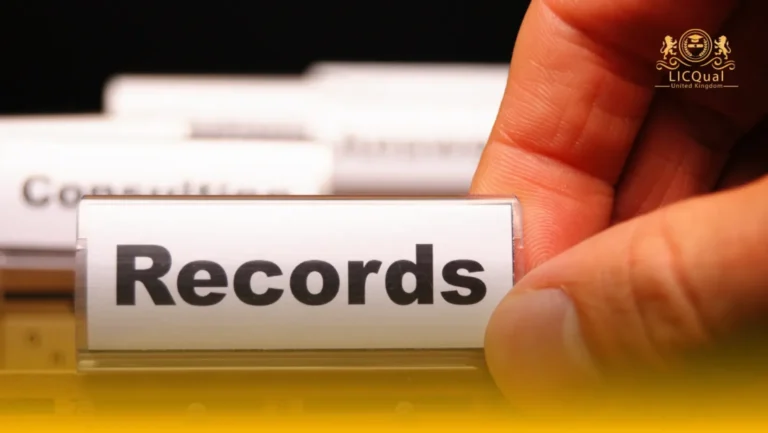The LICQual Level 3 Diploma in Building Management System offers a comprehensive and hands-on approach to mastering the skills required for managing and optimizing building systems effectively. This essential qualification is designed for individuals seeking to develop expertise in the operation, maintenance, and management of complex building management systems (BMS).
Whether you’re looking to enhance energy efficiency, improve sustainability, or ensure optimal system performance, this diploma provides the foundational knowledge to excel in the growing field of building management.
In today’s rapidly evolving real estate and facilities management sectors, professionals with expertise in building automation and systems control are in high demand. The LICQual Level 3 Diploma in Building Management System equips you with the technical knowledge and practical skills needed to manage BMS operations across commercial, industrial, and residential buildings. This qualification ensures that you can deliver effective solutions for reducing operational costs, improving building performance, and contributing to sustainability goals.
The LICQual Level 3 Diploma in Building Management System is designed to provide learners with the technical skills and theoretical understanding necessary to work with complex building systems and ensure their optimal operation. The course focuses on key areas such as energy management, system automation, environmental control, and sustainability practices, preparing you to take on critical roles in building management.
By completing the LICQual Level 3 Diploma in Building Management System, you will be well-equipped to manage, operate, and optimize complex building management systems, contributing to greater efficiency, sustainability, and cost-effectiveness in building operations. Start your journey today and become an essential part of the future of building management.
Course Overview
Qualification Title
LICQual Level 3 Diploma in Building Management System
Total Units
6
Total Credits
60
GLH
240
Qualification #
LICQ2200024
Qualification Specification
To enroll in the LICQual Level 3 Diploma in Building Management System, applicants must meet the following criteria:
|
Qualification# |
Unit Title |
Credits |
GLH |
|---|---|---|---|
|
LICQ2200024-1 |
Introduction to Building Management Systems (BMS) |
10 |
40 |
|
LICQ2200024-2 |
Energy Management and Efficiency |
10 |
40 |
|
LICQ2200024-3 |
Building Automation and Control Systems |
10 |
40 |
|
LICQ2200024-4 |
Maintenance and Troubleshooting of Building Systems |
10 |
40 |
|
LICQ2200024-5 |
Environmental Sustainability in Building Management |
10 |
40 |
|
LICQ2200024-6 |
Building Regulations, Compliance, and Safety Standards |
10 |
40 |
By the end of this course, learners will be able to:
Introduction to Building Management Systems (BMS):
- Understand the core components and functions of building management systems (BMS), and explain how various building systems (HVAC, lighting, security, etc.) work together to optimize building performance.
- Identify the roles and responsibilities involved in managing a BMS, and demonstrate knowledge of the different types of BMS platforms used in commercial, industrial, and residential buildings.
Energy Management and Efficiency:
- Analyze energy usage data within building systems and develop strategies to improve energy efficiency, reduce waste, and lower operational costs.
- Implement energy-saving initiatives and recommend solutions that align with sustainability goals, ensuring that buildings meet or exceed energy performance standards.
Building Automation and Control Systems:
- Evaluate and implement building automation systems that integrate various building technologies, such as HVAC, lighting, and security, to enhance system control and performance.
- Demonstrate the ability to design and manage automation solutions that increase operational efficiency, improve occupant comfort, and reduce energy consumption.
Maintenance and Troubleshooting of Building Systems:
- Perform routine maintenance on key building management systems to ensure efficient operation and longevity.
- Troubleshoot and resolve common issues in BMS components, identifying and applying corrective actions to prevent system failures and minimize downtime.
Environmental Sustainability in Building Management:
- Apply sustainability principles in the management of building systems, focusing on resource conservation, waste management, and reducing the environmental footprint of buildings.
- Design and implement eco-friendly solutions, including renewable energy systems, water conservation techniques, and sustainable waste management practices, to meet sustainability objectives.
Building Regulations, Compliance, and Safety Standards:
- Interpret and apply local and international building regulations and safety standards related to BMS, ensuring compliance with health, safety, and environmental laws.
- Ensure that building systems meet legal requirements, industry best practices, and safety standards, addressing any compliance gaps to avoid legal and operational risks.
This diploma is ideal for:
Assessment and Verification
All units within this qualification are subject to internal assessment by the approved centre and external verification by LICQual. The qualification follows a criterion-referenced assessment approach, ensuring that learners meet all specified learning outcomes.
To achieve a ‘Pass’ in any unit, learners must provide valid, sufficient, and authentic evidence demonstrating their attainment of all learning outcomes and compliance with the prescribed assessment criteria. The Assessor is responsible for evaluating the evidence and determining whether the learner has successfully met the required standards.
Assessors must maintain a clear and comprehensive audit trail, documenting the basis for their assessment decisions to ensure transparency, consistency, and compliance with quality assurance requirements.







